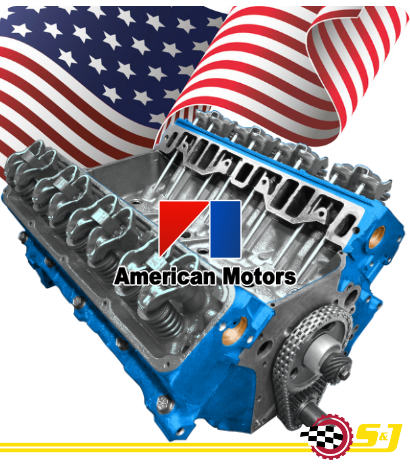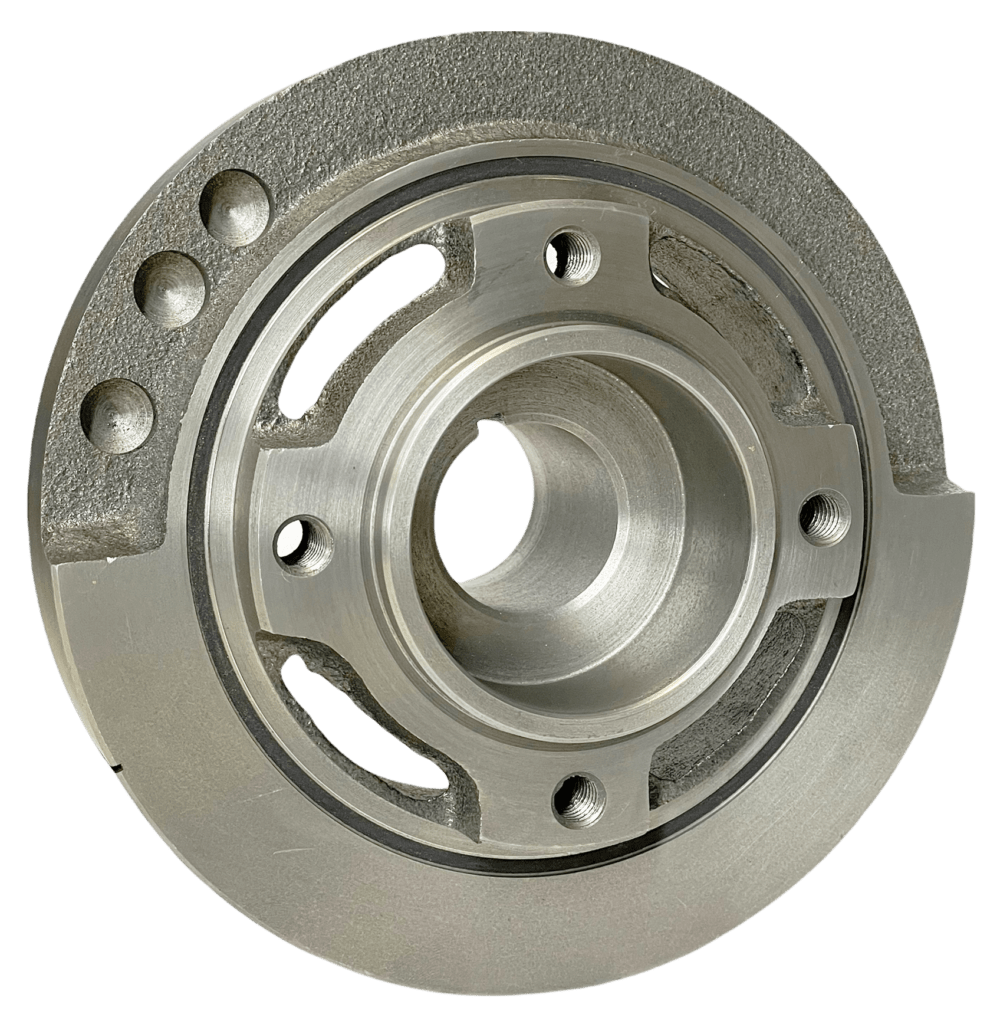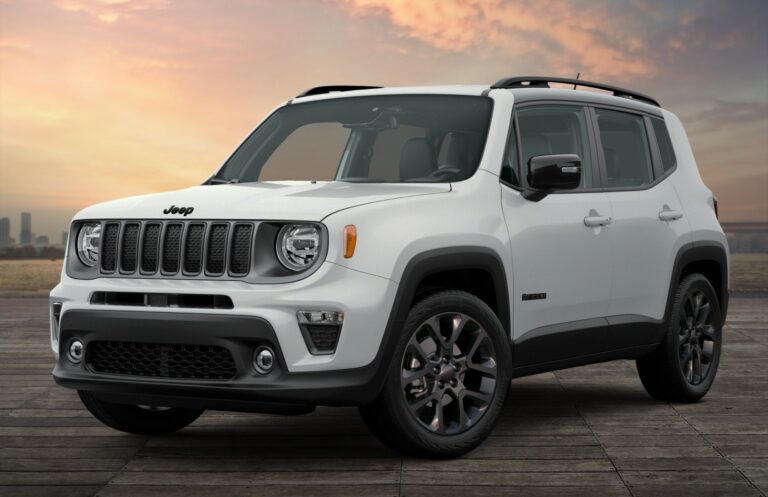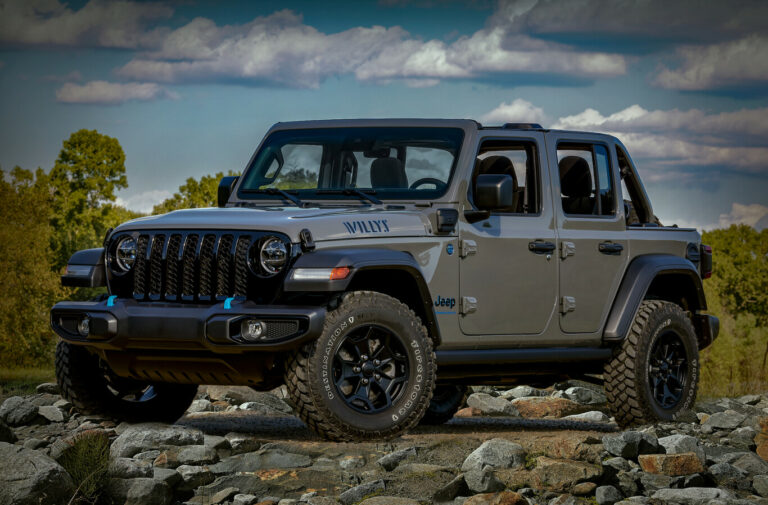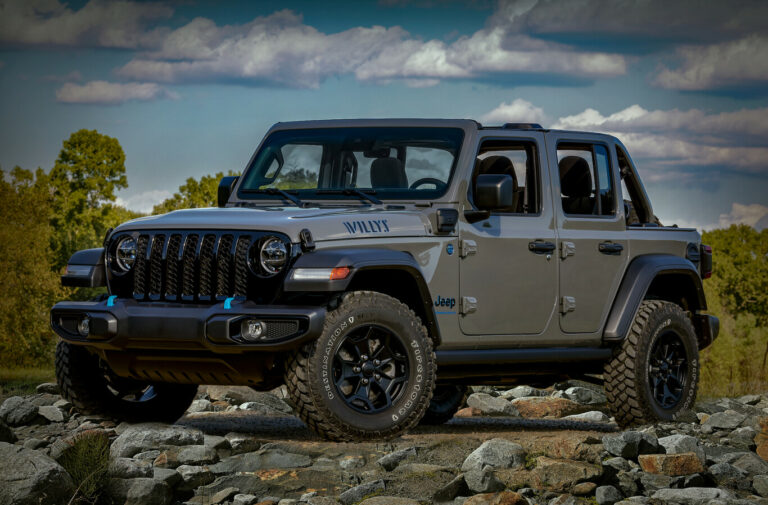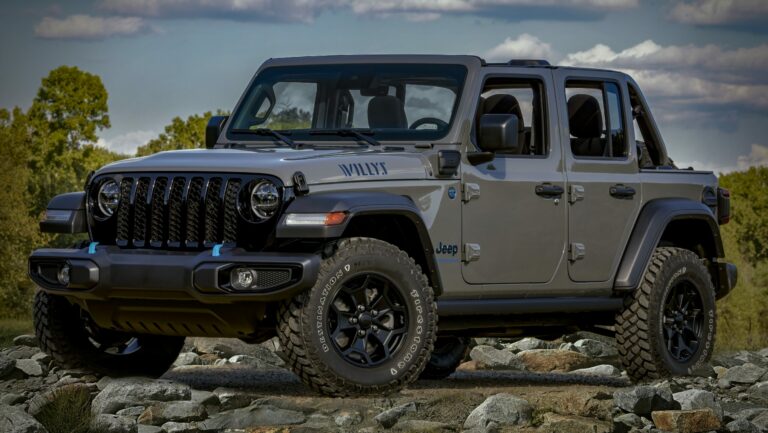401 AMC Jeep Motors For Sale: The Ultimate Guide to Finding Your Powerhouse
401 AMC Jeep Motors For Sale: The Ultimate Guide to Finding Your Powerhouse jeeps.truckstrend.com
The roar of a classic V8 engine is a symphony to the ears of any automotive enthusiast, and few engines command respect quite like the AMC 401 cubic inch (6.6L) V8. For decades, this robust powerhouse has been synonymous with raw American muscle and legendary off-road capability, particularly in its applications within Jeep vehicles. If you’re looking to imbue your classic Jeep, hot rod, or custom project with an undeniable blend of power, torque, and heritage, then a 401 AMC Jeep motor is likely high on your wish list.
This comprehensive guide is designed to navigate the intricate world of acquiring, evaluating, and understanding the nuances of 401 AMC Jeep motors for sale. From its storied history to practical buying tips, cost considerations, and installation insights, we’ll equip you with the knowledge to make an informed decision and bring this iconic piece of automotive history into your garage. Whether you’re a seasoned mechanic or a budding enthusiast, understanding the intricacies of the AMC 401 is key to unlocking its full potential.
401 AMC Jeep Motors For Sale: The Ultimate Guide to Finding Your Powerhouse
Understanding the AMC 401 V8 Engine: A Legacy of Power
The AMC 401 V8, produced by American Motors Corporation (AMC) from 1971 to 1978, stands as a testament to American engineering. It was the largest displacement engine in AMC’s Gen-2 V8 family, a direct evolution from earlier 290, 304, 343, and 360 cubic inch designs. Built with a cast-iron block and cylinder heads, the 401 featured a bore of 4.168 inches and a stroke of 3.68 inches, delivering a potent combination of horsepower and, more importantly for its Jeep applications, immense torque.
Initially rated at 330 gross horsepower and 430 lb-ft of torque in its early muscle car iterations (like the Javelin AMX), its ratings transitioned to net horsepower by 1972, reflecting more realistic, "as installed" figures. In Jeep vehicles, specifically the full-size Wagoneer, J-series pickups, and the CJ-7 (briefly as a factory option), the 401 provided unparalleled grunt for towing, hauling, and conquering challenging terrain. Its reputation as a "torque monster" made it highly desirable for serious off-roaders who needed reliable power at low RPMs.
What makes the 401 so desirable today? Beyond its historical significance, the engine’s inherent design offers a strong foundation for performance. Its robust bottom end, thick cylinder walls, and relatively large displacement allow for significant power increases with aftermarket modifications. For Jeep enthusiasts, the 401 represents a significant upgrade over smaller six-cylinder or V8 engines, offering a more exhilarating driving experience and superior capability, while maintaining a period-correct or heritage-friendly aesthetic.
Where to Find 401 AMC Jeep Motors For Sale
Locating a good 401 AMC Jeep motor can be a treasure hunt, but with the right strategies, you can increase your chances of success. Here’s where to begin your search:
- Online Marketplaces: The digital age has made finding rare parts easier than ever. Websites like eBay Motors, Facebook Marketplace, and Craigslist are excellent starting points. Utilize specific search terms like "AMC 401 engine," "Jeep 401 V8," or "AMC 401 Wagoneer engine." Be prepared to filter through listings and ask detailed questions about the engine’s condition and history.
- Specialty Forums and Groups: Dedicated online communities for AMC vehicles and classic Jeeps (e.g., IFSJA.org for full-size Jeeps, various CJ forums) are invaluable resources. Members often sell parts, and you can tap into a network of knowledgeable enthusiasts who might know of engines for sale, or even have one sitting in their garage.
- Salvage Yards and Junkyards: While increasingly rare, some older salvage yards might still house vintage Jeeps or AMC cars with their original 401 engines. This option usually requires on-site inspection and a willingness to pull the engine yourself, but can yield significant savings. Focus on yards that specialize in older vehicles.
- Engine Builders and Specialty Shops: Several reputable shops specialize in rebuilding classic V8 engines, including the AMC 401. While more expensive, purchasing a professionally rebuilt or remanufactured engine offers peace of mind, often comes with a warranty, and can save you significant time and effort compared to rebuilding a core yourself. These shops might also have core engines for sale.
- Classic Car Shows and Swap Meets: Attending local or regional classic car shows and automotive swap meets can be an excellent way to network and discover leads. Many enthusiasts buy, sell, and trade parts in person.


Evaluating a 401 AMC Jeep Motor for Purchase
Once you’ve located a potential 401, a thorough evaluation is crucial. Buying a used engine is always a gamble, but careful inspection can mitigate risks.
-
Pre-Purchase Inspection (If Possible):
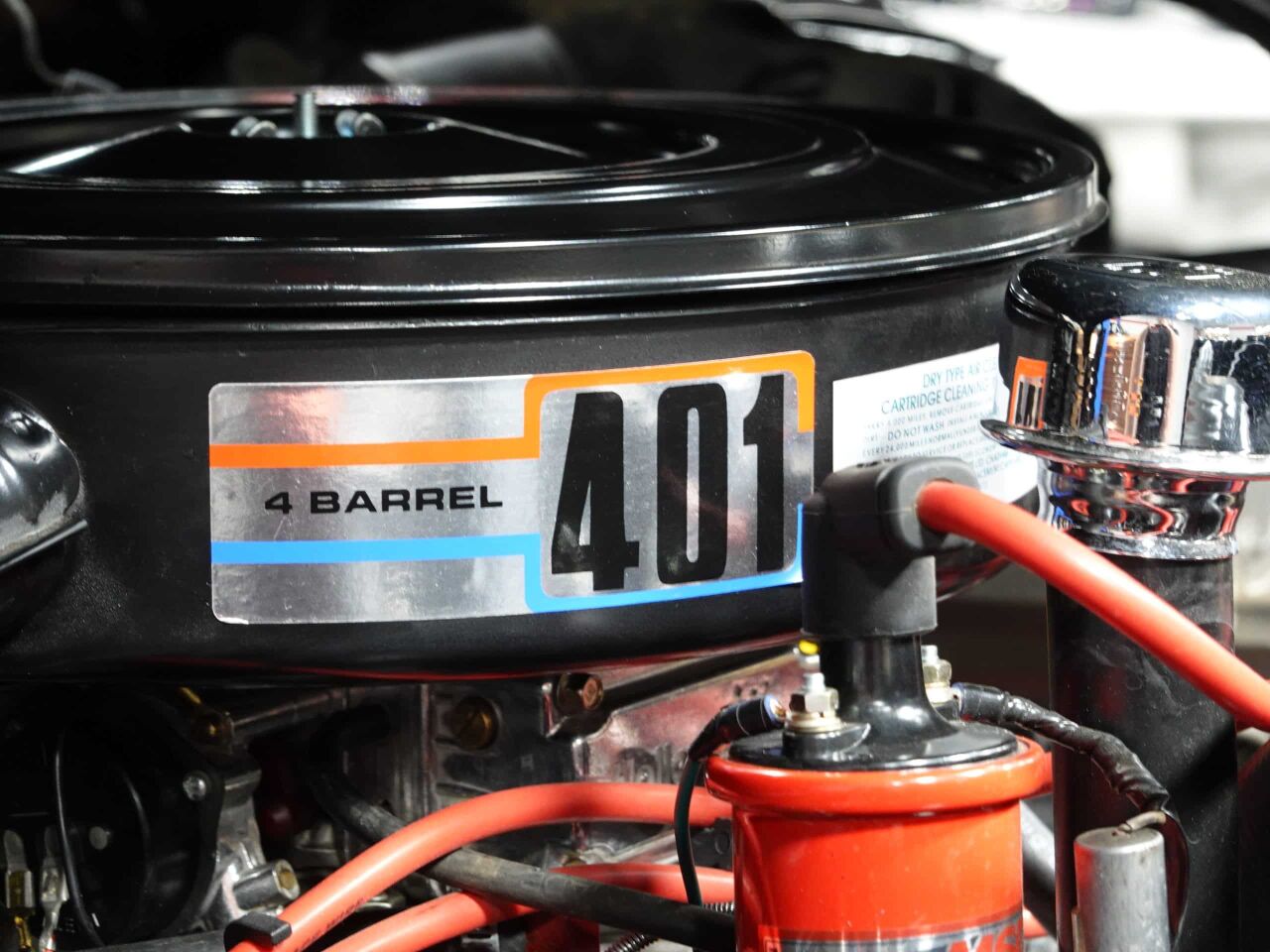
- Visual Check: Look for obvious cracks in the block or cylinder heads, especially around the freeze plugs and exhaust ports. Inspect for signs of significant rust or corrosion. Check the oil pan for large dents.
- Oil Condition: If the engine still has oil, check its color and consistency. Milky oil indicates coolant contamination, while heavy sludge suggests poor maintenance. Metal flakes in the oil are a red flag for internal damage.
- Turning the Engine Over: If possible, try to turn the crankshaft by hand (with a breaker bar on the harmonic balancer bolt). It should turn smoothly with consistent resistance (compression). If it’s seized, assume a full rebuild is necessary.
- Compression Test: For a running engine, a compression test is highly recommended. Low or inconsistent compression across cylinders indicates worn piston rings, valves, or head gasket issues.
- Ancillary Components: Determine what’s included. Does it come with the carburetor, distributor, intake manifold, exhaust manifolds, and accessory brackets? These components, if missing or incorrect, can add significant cost.
- Documentation: Ask the seller if they have any service records, rebuild receipts, or information about the engine’s history.
-
Running vs. Non-Running Engines:
- Running Engines: Offer the advantage of hearing it run, checking for strange noises, smoke from the exhaust, or oil pressure issues. However, "running" doesn’t mean "healthy." A running engine might still require a rebuild. Expect to pay more for a running engine.
- Non-Running/Core Engines: These are cheaper but come with higher risk. Assume a complete rebuild is necessary, which means factoring in machining costs, new internals (pistons, rings, bearings, camshaft, lifters), and gaskets. This option is best for those planning a full custom build or who enjoy the rebuilding process.
-
Originality vs. Modified: Decide if originality is important to you. Some collectors seek matching numbers or factory-correct components. For performance builds, a modified engine might be a better starting point, but ensure modifications were done professionally.
Price Considerations and Budgeting
The cost of a 401 AMC Jeep motor can vary wildly depending on its condition, completeness, and the seller. It’s crucial to budget not only for the engine itself but also for potential rebuild costs, shipping, and installation components.
Factors Influencing Price:
- Condition: A seized core engine will be the cheapest, while a freshly rebuilt, dyno-tested unit will be the most expensive.
- Completeness: A long block (block, heads, crankshaft, rods, pistons) is cheaper than a complete engine with all accessories (carburetor, distributor, exhaust manifolds, water pump, etc.).
- Location: Shipping a heavy engine across the country can be expensive, so local finds can save money.
- Seller Type: Private sellers might offer lower prices but fewer guarantees, while reputable shops provide warranties and expert advice.
- Market Demand: The popularity of these engines fluctuates, impacting pricing.
Price Table: 401 AMC Jeep Motors & Related Costs
| Component/Condition | Estimated Price Range (USD) | Notes |
|---|---|---|
| 401 AMC Core Engine | $500 – $1,500 | Non-running, complete or mostly complete for rebuild. Condition varies wildly; assume full overhaul needed. |
| 401 AMC Running Engine (As-Is) | $1,500 – $3,500 | Pulled from a running vehicle. May have unknown wear or issues. Test before purchase if possible. |
| 401 AMC Standard Rebuilt Engine | $4,000 – $7,000 | Professionally rebuilt to stock or near-stock specifications. Often includes a warranty. |
| 401 AMC Performance Rebuilt Engine | $7,000 – $12,000+ | Features upgraded components (e.g., cam, heads, pistons) for increased horsepower and torque. |
| Accessory Package (Carb, Dizzy, Manifolds) | $500 – $1,500 | If not included with the engine. Price depends on completeness, condition, and type (stock vs. performance). |
| Transmission Adapter (AMC to GM/Ford) | $300 – $700 | Necessary for pairing the 401 with non-AMC transmissions (e.g., TH400, 700R4, NV4500). |
| Motor Mounts (Swap Specific) | $150 – $400 | Custom mounts are often required for engine swaps into different chassis. |
| Performance Carburetor (New) | $400 – $800 | For optimal fuel delivery and performance with a built 401. |
| Ignition System (New Distributor, Coil) | $300 – $700 | Upgraded electronic ignition systems improve reliability and performance. |
| Radiator (Upgraded) | $300 – $800 | Essential for proper cooling, especially in heavy-duty or off-road applications. |
| Exhaust System (Custom Fabrication) | $500 – $1,500+ | Custom headers and exhaust often needed for swaps due to space constraints. |
| Installation Labor (Shop Rate) | $1,000 – $3,000+ | If not a DIY project. Varies significantly based on shop rates and complexity of the swap. |
| Shipping/Freight Costs | $200 – $800+ | For engines purchased remotely. Depends on distance, weight, and freight carrier. |
Installation and Compatibility in Jeeps
The AMC 401 is a popular engine swap for many Jeep models, particularly older CJs and full-size Jeeps (SJ series like Wagoneers and J-trucks). While it was a factory option in some of these, swapping it into a vehicle that originally had a smaller engine requires careful planning.
-
Common Swap Candidates:
- CJ Series (CJ-5, CJ-7, CJ-8): Very popular. Many kits exist for motor mounts and transmission adapters. The 401 provides a significant power boost over stock 4, 6, or 8-cylinder engines.
- SJ Series (Wagoneer, J-series trucks, Cherokee Chief): A more straightforward swap if the vehicle originally came with an AMC V8 (304, 360). For a 401 replacement, it’s often a direct bolt-in for motor mounts and bellhousing patterns.
- YJ Wrangler/XJ Cherokee: These are more involved swaps due to different frame designs, engine bays, and original drivetrain components. They typically require custom fabrication for motor mounts, transmission adapters, and cooling systems.
-
Key Considerations for a Swap:
- Transmission Compatibility: AMC V8s share a unique bellhousing bolt pattern. If your Jeep has a non-AMC transmission (e.g., a GM TH350/400, or a modern automatic), you’ll need an adapter plate and potentially a custom torque converter. Many prefer to pair the 401 with a robust automatic like a TH400 or a manual like the NV4500.
- Motor Mounts: Custom motor mounts are almost always required when swapping into a vehicle that didn’t originally house an AMC V8. Several aftermarket companies offer swap-specific kits.
- Cooling System: The 401 generates significant heat. An upgraded, larger radiator, a robust fan (electric or mechanical), and proper fan shroud are absolutely essential to prevent overheating, especially in off-road conditions.
- Fuel System: You’ll need larger fuel lines and a higher-capacity mechanical or electric fuel pump to adequately feed the 401.
- Exhaust System: Custom exhaust headers and piping will likely be necessary to clear chassis components and provide optimal flow.
- Driveshafts: The new engine/transmission combination might alter drivetrain length, requiring driveshaft modifications.
- Electrical System: Integrating the 401’s wiring into your Jeep’s electrical system will require careful planning or professional assistance.
- Suspension: The added weight of the 401 might necessitate upgraded front springs to maintain ride height and handling.
Common Challenges and Solutions
While exhilarating, a 401 AMC swap or purchase can present unique challenges.
- Finding Parts: While not as ubiquitous as small-block Chevy parts, aftermarket and NOS (New Old Stock) parts for the AMC 401 are still available from specialty suppliers like Summit Racing, Jegs, BJ’s Off-Road (for Jeeps), and various AMC-specific vendors. Online forums are great for finding used parts.
- Machining: Not all machine shops are equally familiar with AMC engines. Seek out a shop with a good reputation and specific experience with AMC V8s to ensure proper machining and assembly.
- Oil System: Early AMC V8s had some oiling system eccentricities. Consult with your engine builder about potential modifications or best practices to ensure adequate oil pressure and lubrication, especially in high-performance applications.
- Fuel Economy: Let’s be realistic: a large, carbureted V8 designed in the 1970s is not going to be fuel-efficient. Expect single-digit to low-double-digit MPG, especially in a heavy Jeep.
- Emissions: Be aware of local emissions regulations. Swapping an older, non-emissions-controlled engine into a newer vehicle might be illegal in some areas. Check your state’s laws before proceeding.
- Cost Creep: Engine swaps and rebuilds often exceed initial budget estimates. Always factor in a contingency fund for unexpected issues or additional parts.
Conclusion
The 401 AMC Jeep motor represents a thrilling blend of raw power, historical significance, and a timeless appeal. For enthusiasts seeking to inject serious muscle and authentic character into their classic Jeep or custom build, few engines deliver quite like it. While acquiring and installing one requires careful research, budgeting, and often a significant investment of time and resources, the rewards are undeniable.
The distinctive rumble, the ample torque for any terrain, and the sheer satisfaction of owning a piece of AMC’s performance legacy make the journey worthwhile. By following the advice outlined in this guide – from meticulous evaluation and strategic sourcing to comprehensive planning for installation – you can confidently navigate the market for 401 AMC Jeep motors for sale and bring this iconic powerhouse to life in your next project. Embrace the challenge, enjoy the process, and prepare to unleash the beast within your Jeep.
Frequently Asked Questions (FAQ)
Q: What vehicles originally came with the AMC 401 engine?
A: The AMC 401 V8 was primarily offered in full-size Jeep vehicles like the Wagoneer, J-series pickups (J10, J20), and briefly in the CJ-7. It was also a high-performance option in AMC muscle cars such as the Javelin AMX, Matador, Gremlin, and Hornet.
Q: Is the AMC 401 a good engine for off-roading?
A: Absolutely. The 401 is renowned for its excellent low-end torque, which is crucial for crawling over obstacles, climbing steep grades, and pulling heavy loads in off-road conditions. Its robust construction also contributes to its durability in demanding environments.
Q: Are parts readily available for the AMC 401?
A: While not as common as parts for Chevrolet or Ford engines, components for the AMC 401 are still available. Specialty aftermarket suppliers, classic AMC parts dealers, and some performance parts manufacturers continue to produce or stock critical items like pistons, camshafts, bearings, and gaskets.
Q: Can I put a 401 into any Jeep?
A: Technically, with enough fabrication, a 401 can be installed in almost any Jeep. However, the ease of the swap varies greatly. It’s a relatively straightforward swap for older full-size Jeeps (SJ series) and CJ models that originally came with AMC V8s. Swapping into newer Jeeps like YJs or XJs requires significantly more custom work, including motor mounts, transmission adapters, and cooling system modifications.
Q: What should I look for when buying a used 401 engine?
A: Key inspection points include checking for visible cracks in the block or heads, signs of excessive rust or corrosion, evidence of coolant in the oil (milky appearance), and metal flakes in the oil. If possible, attempt to turn the crankshaft by hand to check for seizure and perform a compression test on a running engine. Ask for any service or rebuild records.
Q: Is it expensive to rebuild an AMC 401?
A: The cost of rebuilding an AMC 401 is comparable to rebuilding other classic V8 engines. While some specialized parts might be slightly more expensive due to lower production volumes, the overall cost will depend on the extent of the rebuild (stock vs. performance) and whether you perform the work yourself or pay a professional shop.
Q: What transmission should I pair with a 401?
A: The AMC 401 originally came with various AMC transmissions, including the TH400 (built under license by AMC). For swaps, many enthusiasts adapt the 401 to robust, commonly available transmissions like the GM TH400, 4L80E (for an overdrive option), or manual transmissions like the NV4500, using appropriate adapter plates.
